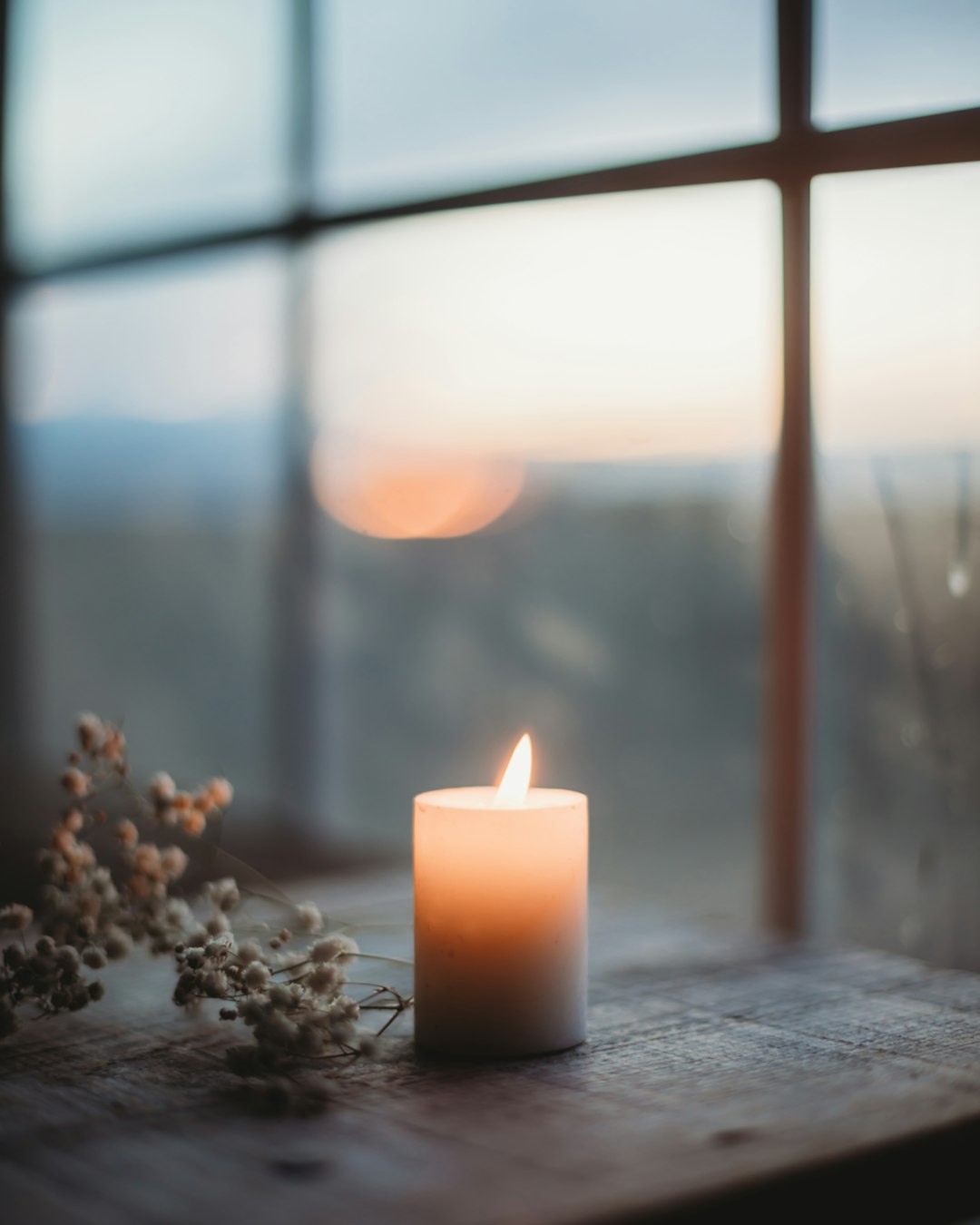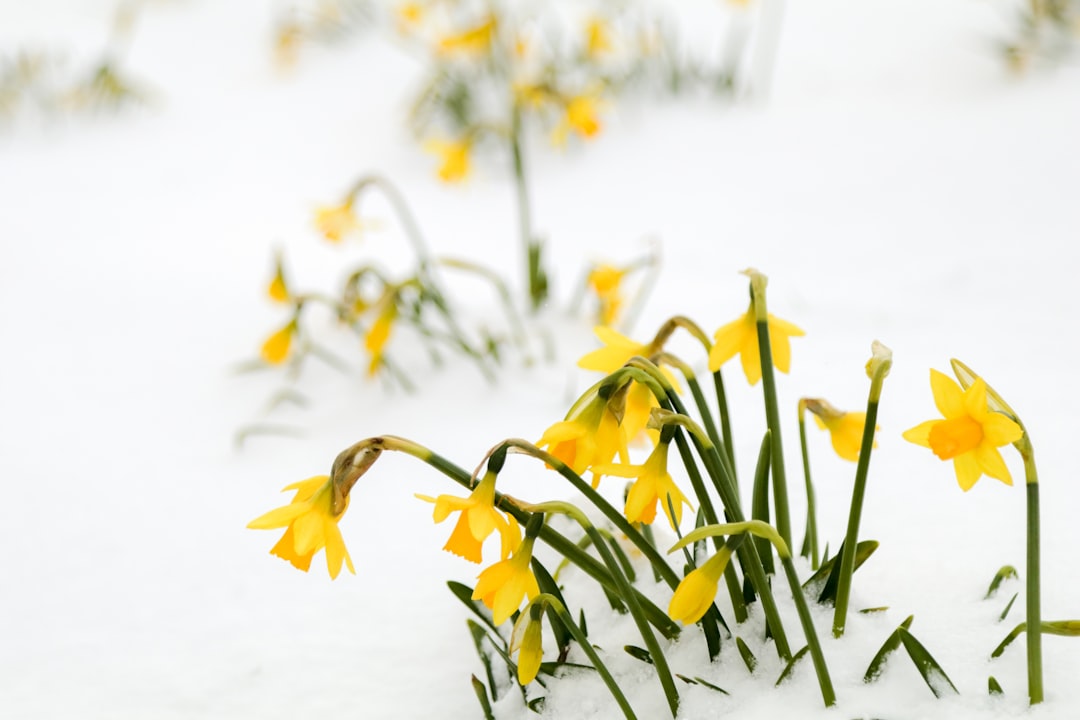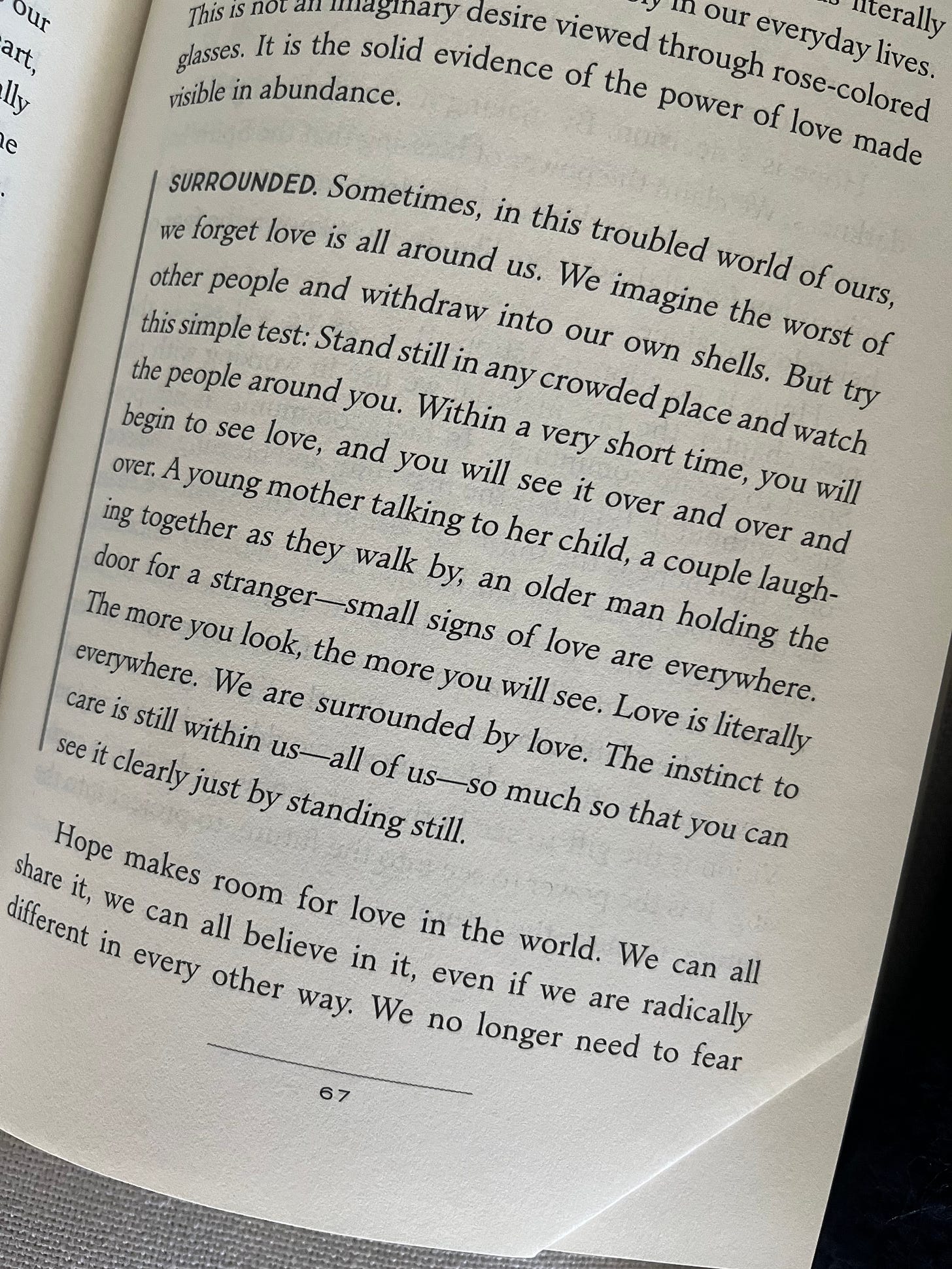We have been given the sacred task of making hearts large through story. We are working to make hearts that are capable of containing much joy and much sorrow, hearts capacious enough to contain the complexities and mysteries and contradictions of ourselves and of each other.
We are working to make hearts that know how to love this world.
Kate DiCamillo
Early each morning, I pour a cup of coffee with soy creamer, light a candle1, and read a few articles about what is happening in Ukraine and the world. I view it as my practice of witnessing.
I found a piece from the New York Times earlier this month super helpful in developing and articulating something I felt but didn’t have the words for. This particular paragraph framed the practice of witnessing in a useful way.
That human spirit is the reason I feel responsible not just for being informed but also for witnessing. It is easy to look away when the conflict feels remote, but bearing witness is the responsibility of being a citizen of a global superpower. I am also part of a community of people marked by others’ willful forgetting about the price we had to pay to win human dignity. That makes witnessing urgent. I do not want to do to others what is routinely done to us. I do not want to be the person who deals with human cruelty by ignoring it.
-Tressie McMillan Cotton - “How to Avoid Drowning in an Ocean of Information” New York Times March 7, 2022
The practice of witnessing isn’t easy. I turn away and I turn off. I’ve wiped a few tears and sometimes I feel angry, other times I feel helpless and hopeless.
The practice of witness I believe develops the capacity of the heart to hold both the sorrows and the joys of my fellow humans. Witnessing helps me see our commonality and our shared humanity rather than separate and different because of location or beliefs.
In this beautiful interview with the author Kate DiCamillo, she talks about teaching children the word capacious through her stories. I was driving at that part of the interview and immediately asked Siri to define capacious for me.
ca·pa·cious
/kəˈpāSHəs/
adjective
having a lot of space inside; roomy.
Since that moment on State Street, I’ve been a little bit (a lot) obsessed with the word. What does it mean to have lots of space inside? How do things shift in my heart and the world when I find extra space inside?
The opposite of capacious is cramped. It’s not fun to be in cramped spaces where there isn’t space to move with ease. In cramped spaces, it is hard to stand tall or stretch out legs and arms. In cramped physical spaces, there is a vague sense of less air to breathe. It feels stifling and too tight.
In capacious areas, there is room to stand tall and express the fullness of our being. There is room to breathe freely. When there isn’t a struggle to breathe, it’s easier to welcome others.
The practice of witnessing starts with a longing for enough heart space to hold the pains and joys of fellow humans. What hurts a population on the other side of the globe ripples through hearts and communities on this side of the world.
It’s hard to witness and it’s easy to not witness. While the practice of witnessing is a solitary act (alone with my candle and news ap, early in the morning) it’s an act of generosity that I hope over time develops a capacious heart- a heart that has space to hold the sorrows and joys of the world. I can’t witness everything, but I can witness something.
May you find your own practice of witnessing. As you witness the things you are asked to see, may your heart grow capacious. May you find space to hold things you didn’t know you could hold-and may our capacious hearts bring peace in our homes, communities, and world.

Try this practice of looking for love suggested on page 67 in Ladder to the Light by Steven Charleston. What small signs of love do you spot? This is another practice of witnessing.
Recently Finished:
Ladder to the Light: An Indigenous Elder's Meditations on Hope and Courage by Steven Charleston
Steven Charleston is a former Episcopal Bishop in Alaska and a member of the Choctaw Nation of Oklahoma. This book took me a long time to read. Almost every sentence felt important and filled with so many layers of meaning to uncover and try to integrate. It is a capacious book! I read a little section each night before bed. I think I might add it to my morning reading list and read through it again.
“Celebrating what we hope for together is better than fighting over what we believe separately.”
― Steven Charleston, Ladder to the Light: An Indigenous Elder's Meditations on Hope and Courage
Let’s talk about Kate DiCamillo
Her books are truly magical. I was first introduced to her writing when my son read The Magical Journey of Edward Tulane in a 3rd-grade reading club. It’s the story of a stuffed rabbit, written from the rabbit's perspective. I’m not sure if it’s possible to read the last few pages of that book and not cry.
I also really enjoyed The Magician's Elephant and The Beatryce Prophecy
“It is important that you say what you mean to say. Time is too short. You must speak the words that matter.”
― Kate DiCamillo, The Magician's Elephant

I try to pay attention to words or phrases that stand out in my reading and listening. There is a spiritual practice called Florliledgium that collects short, interesting pieces {words that “sparkle” up} and puts them together. This is kind of like that. Watching for things that sparkle. Gathering them and seeing how they work together and what message, mantra, or new idea might arise.)
A Practice:
Read slowly.
Notice if a word or phrase stands out to you.
How do the words make you feel?
Is there an invitation?
(I’m sharing in italics the lines that stand out to me in these passages. Maybe it’s the same, or maybe it’s different, there is much food for thought in each of these passages)
“Edward knew what it was like to say over and over again the names of those you had left behind. He knew what it was like to miss someone. And so he listened. And in his listening, his heart opened wide and then wider still.”
― Kate DiCamillo, The Miraculous Journey of Edward Tulane
All things come and go. Be at peace on this blessed day, whether it brings sunlight or storms, serenity or struggle. Be at peace in passing through it, doing what needs to be done, living as fully as you can, as authentically as you can, at peace in your soul. Know that all things come and go on the way to where you are called to be. They pass around you, they pass over and under you, but they do not define you or contain you. For your life is not an inventory of pains or pleasures, but a sonnet of the spirit, a mystery fashioned from and for eternity, a strength so powerful that it can afford to be vulnerable to love. Be at peace on this blessed day.
― Steven Charleston, Ladder to the Light: An Indigenous Elder's Meditations on Hope and Courage
Red Lava and Citrus from Better Home and Gardens Candles (at Walmart!)







